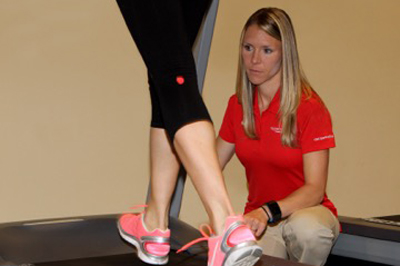Mar 14, 2017Advice for the New AT

You’ve received congratulations from your family, classmates, and friends on passing your Board of Certification athletic training examination. You’ve landed your first position, either as an intern, graduate student, or full-time athletic trainer. As a newly certified athletic trainer entering the profession, what should you know? Having mentored dozens of newly certified athletic trainers for 35 years at the NCAA Division I level, and now as a program director of an athletic training education program, I would like to briefly discuss important factors that entry-level athletic trainers should consider when starting their careers.
Mentorship: When starting in your first position, it is important that you seek and accept mentorship. Gaining certification is the threshold of professional practice, not the end of it. I was fortunate to receive immeasurable mentorship from Don Lowe, MA, ATC, Coordinator of Sports Medicine at Syracuse University when I started as a Graduate Assistant Athletic Trainer there in 1979. In 1981, I became an Assistant Athletic Trainer at Syracuse, and for the next 19 years, I learned every day from Don about the methodology and medicine of athletic training.
Take time to observe and ask questions about care and administration considerations. Studies show one of the most effective ways to learn is through stories, so ask about the experiences your mentor and other staff members have had in their careers.
Gaining certification is the threshold of professional practice, not the end of it.
Responsibility: You are a medical professional, and you are held to a higher standard of provision in your duties. The athletic trainer’s foremost responsibility is to the primacy of their patients. The athletic trainer should not get caught up in the winning and losing of a season. I have worked with numerous teams that were very successful, including six NCAA Division I men’s lacrosse championship teams. Though I was happy when my teams won, I was always more concerned with the care I was providing them. Simply put, though an athletic trainer can like athletics, he or she needs to love the profession of athletic training more.
Professionalism & Ethical Behavior: Along with taking on professional responsibility, you are also taking on the responsibility of professionalism. There is more to athletic training excellence than just being an excellent athletic training care provider. Athletic trainers must also practice ethically. There’s no better time to start than at the beginning of your career. The newly certified athletic trainer must consider the ethical, legal, and regulatory practices in their respective state. This ensures the professional practice the public expects from the athletic trainer. Be sure to obtain the athletic trainer license to practice in your state.
In July 2016, the NATA Code of Ethics was updated. Please take the time to review and abide by the Code of Ethics found here.
Policies & Procedures: As soon as you obtain your first position, know and abide by all policies and procedures of the sports medicine department. As an expert witness, I have seen instances where certified athletic trainers — particularly those early in their careers — were not familiar with policies and procedures that would have prevented the poor outcome that resulted in litigation.
Time Commitment: As an athletic training student, there were restrictions on the amount of time you could put in. As a certified athletic trainer, however, expect to work a good amount of time, usually seven days per week while in-season with a team.
I have seen many a graduate assistant athletic trainer and newly minted full-time athletic trainer get overwhelmed with this dynamic. If you were to research other professions, you would discover that they, too, have to put in more hours than originally anticipated. My suggestions to manage this expectation is to maximize the time spent at the office or clinic through studying the profession. It’s also important to take care of yourself by eating well, staying hydrated, getting enough sleep, exercising, planning in personal or family time, and maintaining a sense of humor.
Communication: As a newly certified athletic trainer, you should be working to enhance your communication skills. Writing and speaking well are a must, along with being able to effectively read body language. When communicating with others, be honest in what you know. Make your statements so clear that they cannot be misunderstood by another party.
Study & Professional Development: I recommend that all newly certified athletic trainers — and all athletic trainers, for that matter — continuously study the profession and general medicine. I have seen athletic trainers stop studying, believing that their job was to just “be around” to cover events. But our profession is about providing quality health care to active individuals. Your goal should be not just to stay current, but to be ahead of trends and medical conditions you may face. Expand your skills and knowledge continuously.
Part of the social contract athletic training has with the public is the guarantee of competence in the performance of medical care. If you are performing techniques that require certification, be sure that you are properly certified by the entity that owns the technique and that you went through the proper training and recertifications necessary to perform the technique effectively and safely.
Embarking on an athletic training career is both exciting and daunting. Prepare for the new responsibilities early in your career to maximize the effectiveness and satisfaction of being a member of this great profession.



